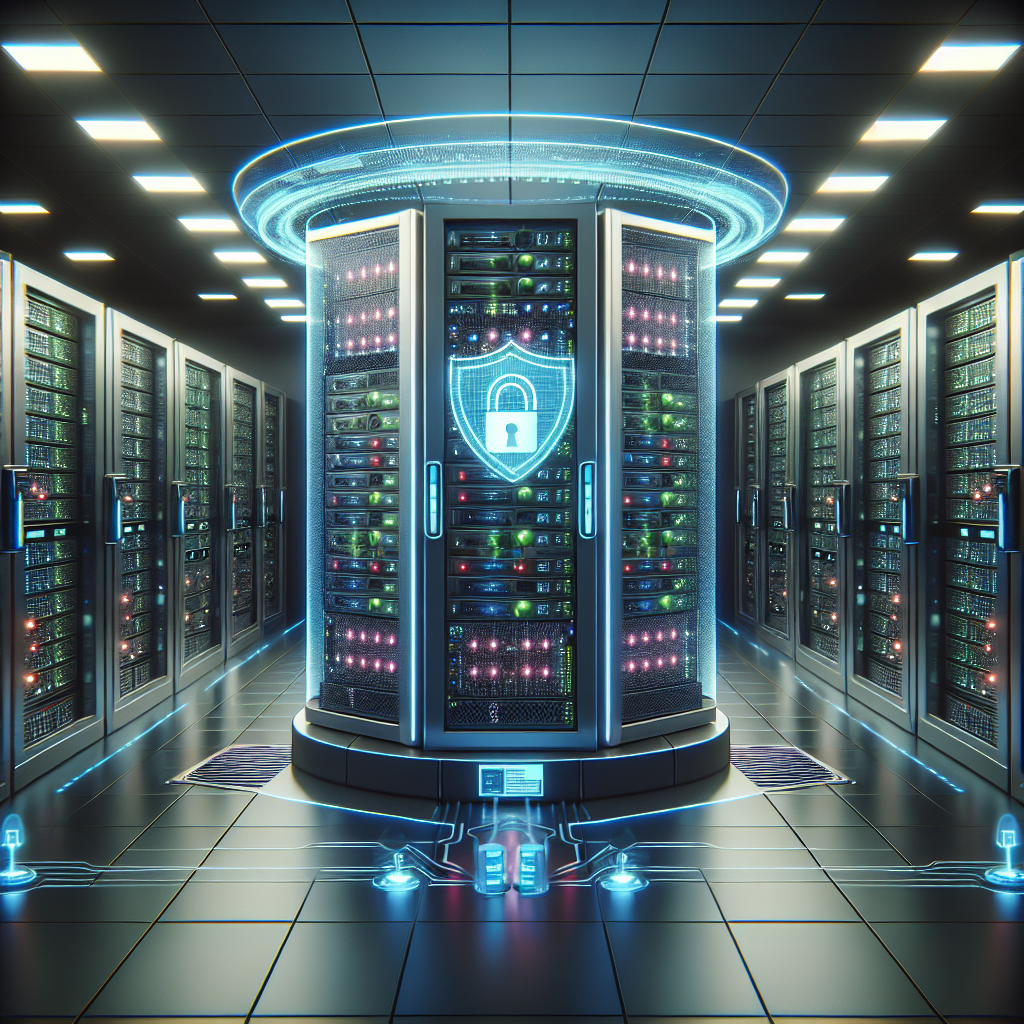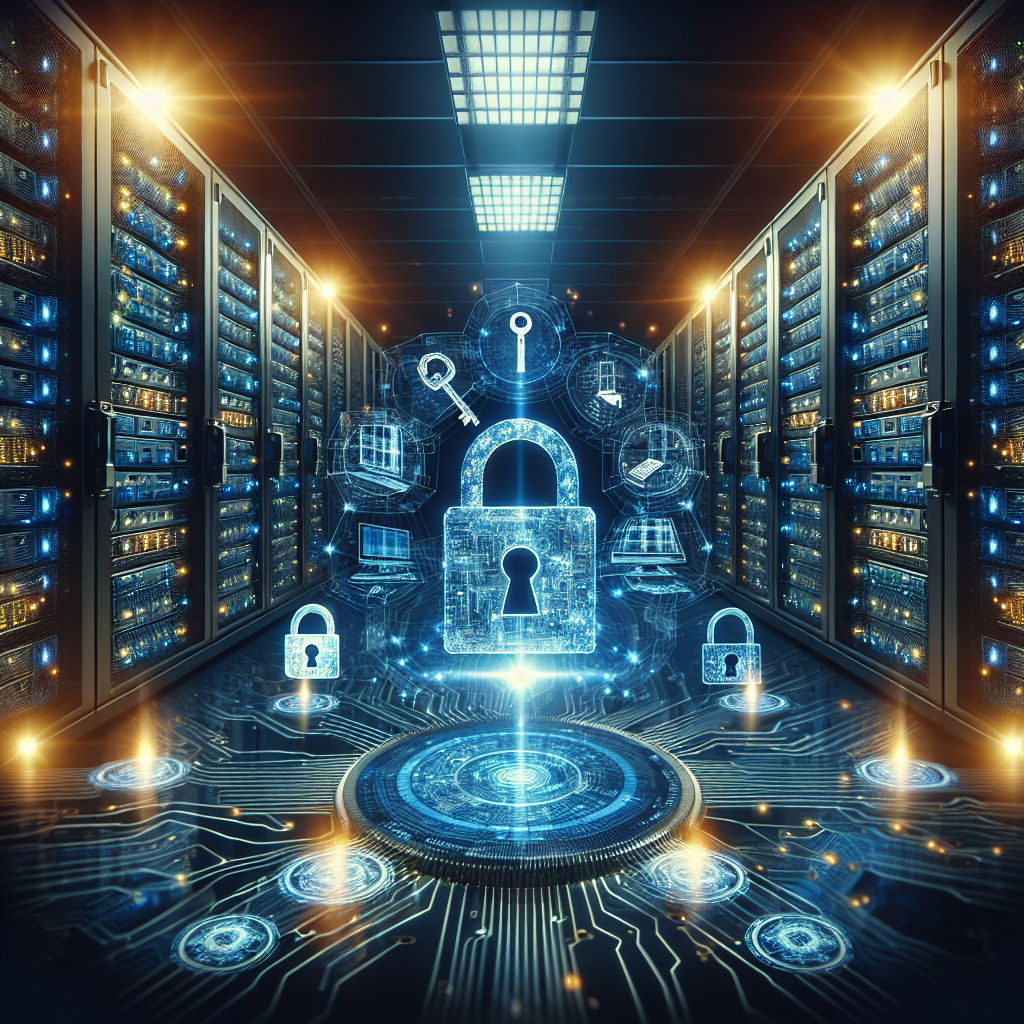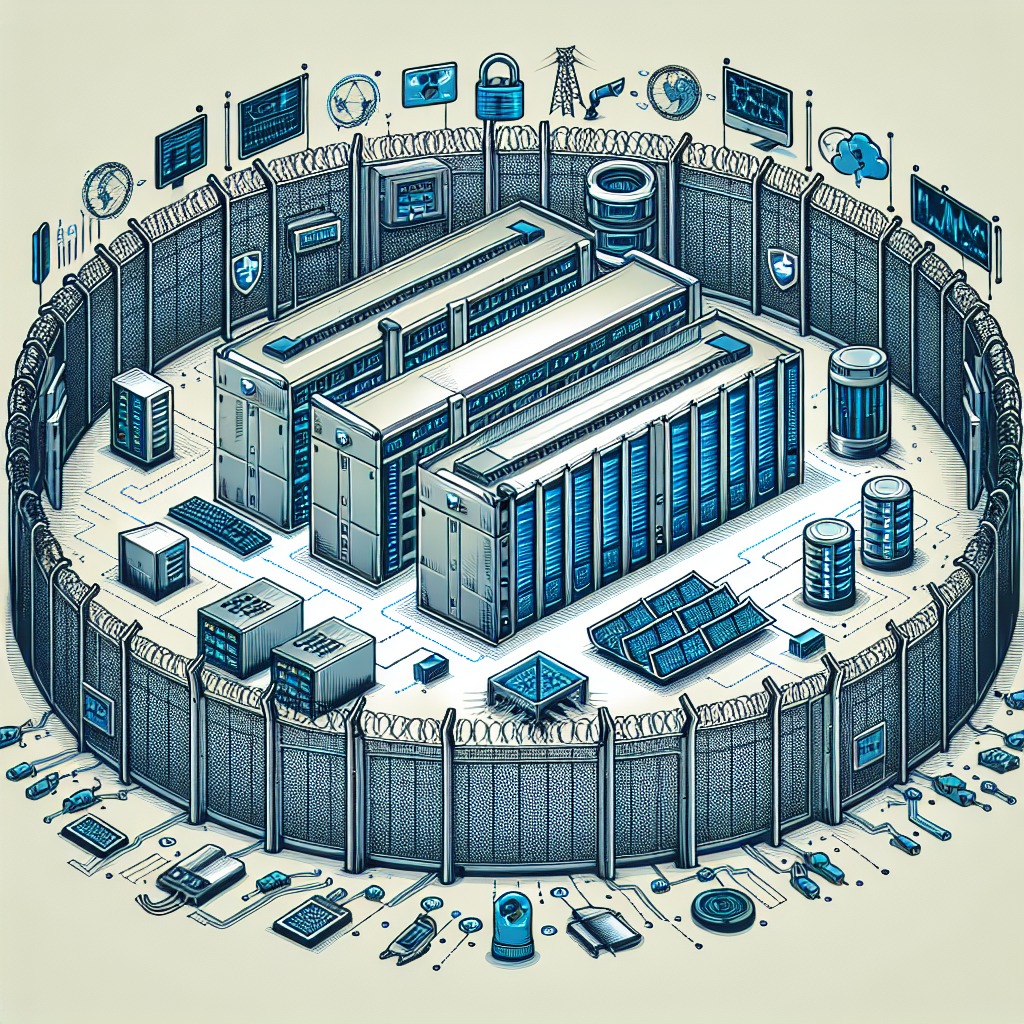Your cart is currently empty!
Tag: Safe

Protecting Against Cyber Attacks: How Data Center Security Systems Keep Your Information Safe
In today’s digital age, protecting against cyber attacks is a top priority for businesses and individuals alike. With the increasing reliance on technology and the internet, the threat of cyber attacks has never been greater. Data breaches can result in the loss of sensitive information, financial losses, and damage to a company’s reputation. This is why data center security systems are crucial in keeping your information safe.Data centers are facilities that house computer systems and data storage devices. They are responsible for storing, processing, and managing large amounts of data for businesses and organizations. With the amount of sensitive information stored in data centers, they are prime targets for cyber criminals looking to steal valuable data.
Data center security systems are designed to protect against cyber attacks and unauthorized access to the data stored within them. These systems include a combination of physical security measures, such as surveillance cameras, access control systems, and biometric scanners, as well as cybersecurity measures, such as firewalls, encryption, and intrusion detection systems.
One of the key components of data center security systems is the use of firewalls. Firewalls act as a barrier between the data center’s internal network and the outside world, monitoring and filtering incoming and outgoing network traffic to prevent unauthorized access. Encryption is another crucial component of data center security systems, as it ensures that data is securely transmitted and stored, making it unreadable to anyone who does not have the proper encryption key.
Intrusion detection systems are also important in protecting against cyber attacks. These systems monitor network traffic and detect any suspicious activity that may indicate a potential breach. Once detected, these systems can automatically block the malicious activity and alert security personnel to investigate further.
In addition to these technical measures, data center security systems also rely on physical security measures to protect against unauthorized access. Access control systems, such as key cards and biometric scanners, ensure that only authorized personnel have access to the data center. Surveillance cameras and security guards further enhance the physical security of the facility.
Overall, data center security systems play a critical role in protecting against cyber attacks and keeping your information safe. By implementing a combination of physical and cybersecurity measures, data centers can effectively safeguard sensitive data from cyber threats. As cyber attacks continue to evolve and become more sophisticated, it is essential for businesses to invest in robust data center security systems to protect their valuable information.

Keeping Your Data Safe: The Role of Security Systems in Data Centers
Data centers play a crucial role in today’s digital world, serving as the central hub for storing and processing vast amounts of information. With the increasing amount of sensitive data being stored in data centers, it has become more important than ever to ensure that this information is kept safe and secure. One of the key components in safeguarding data in data centers is the implementation of robust security systems.Security systems in data centers are designed to protect against both physical and cyber threats. Physical security measures include access control systems, surveillance cameras, and alarms to monitor and control who enters the facility. These measures help prevent unauthorized individuals from gaining access to the data center and potentially compromising the sensitive information stored within.
In addition to physical security, data centers also employ various cybersecurity measures to protect against cyber threats. This includes firewalls, intrusion detection systems, and encryption techniques to safeguard data from unauthorized access, theft, or manipulation. Regular security audits and penetration testing are also conducted to identify and address any vulnerabilities in the system.
One of the key aspects of data center security is data backup and disaster recovery planning. In the event of a security breach or natural disaster, having a reliable backup system in place ensures that data can be recovered quickly and efficiently. This helps minimize downtime and ensures that critical business operations can continue uninterrupted.
Furthermore, data centers often have redundant power and cooling systems in place to ensure continuous operation even in the event of power outages or equipment failures. These redundancies help prevent data loss and ensure that data remains accessible at all times.
Overall, security systems play a crucial role in protecting the sensitive data stored in data centers. By implementing a combination of physical and cybersecurity measures, data center operators can ensure that their data remains safe and secure from potential threats. As technology continues to evolve and data becomes increasingly valuable, investing in robust security systems is essential to safeguarding data and maintaining the trust of customers and stakeholders.

Safety First: How to Create a Safe and Secure Data Center
In today’s digital age, data centers play a crucial role in storing and processing vast amounts of information. As more and more businesses rely on data centers to run their operations, it is essential to prioritize security and safety measures to protect sensitive data from potential breaches and threats.Creating a safe and secure data center requires a comprehensive approach that encompasses physical security, cybersecurity, and operational best practices. By implementing the following measures, businesses can ensure that their data center is well-protected and resilient against potential risks.
1. Secure Access Controls: Limiting access to the data center is one of the most critical security measures. Implementing access controls such as biometric scanners, key cards, and PIN codes can help prevent unauthorized individuals from entering the facility. Additionally, implementing a visitor management system can track and monitor who enters and exits the data center at all times.
2. Surveillance Cameras: Installing surveillance cameras throughout the data center can provide real-time monitoring of all activities within the facility. Cameras should be strategically placed to cover all areas, including entrances, server rooms, and storage areas. Regularly reviewing footage can help identify any suspicious activities and prevent potential security breaches.
3. Physical Security: In addition to access controls and surveillance cameras, physical security measures such as security guards, alarm systems, and perimeter fencing can further enhance the overall security of the data center. Regular security audits and assessments can help identify vulnerabilities and address any potential weaknesses in the facility’s physical security.
4. Redundant Power and Cooling Systems: Data centers rely on continuous power and cooling to ensure that servers and equipment operate efficiently. Implementing redundant power and cooling systems can help prevent downtime and ensure that critical operations remain uninterrupted in the event of a power outage or equipment failure.
5. Data Encryption: Encrypting sensitive data stored within the data center is essential to protect it from unauthorized access. Implementing encryption protocols and secure communication channels can help safeguard data from potential breaches and ensure that it remains secure at all times.
6. Regular Security Training: Educating employees on security best practices and protocols can help prevent human error and ensure that all staff members are aware of their roles and responsibilities in maintaining a safe and secure data center. Regular security training sessions can help reinforce security policies and procedures and ensure that employees are equipped to handle potential security threats effectively.
By implementing these safety and security measures, businesses can create a safe and secure data center that protects sensitive information and ensures the continuity of operations. Prioritizing security in the design and management of data centers is essential to safeguarding critical data and maintaining the trust of customers and stakeholders. Remember, safety first when it comes to data center security.
